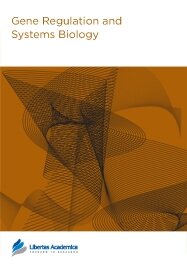

Publication Date: 27 Aug 2008
Journal: Gene Regulation and Systems Biology

Division of Psychobiology, Tokyo Institute of Psychiatry, Tokyo, Japan.
Abstract
Purpose: Epileptic mutant EL mice show secondary generalized seizures. Seizure discharges initiate in the parietal cortex and generalize through the hippocampus. We have previously demonstrated an increase in the activity of inducible nitric oxide synthetase (iNOS) as well as a decrease in the activity of superoxide dismutase (SOD) in the hippocampus of EL mice, suggesting that cell toxic free radicals are increased in the brain of EL mice. In parallel with this, neurotrophic factors were significantly increased in the hippocampus of EL mice in earlier developmental stages before exhibiting frequent seizures. These findings were no longer present after frequent seizures, suggesting that these events may trigger ictogenesis. On the other hand, it is reported that limbic seizures rapidly induce cytokines and related inflammatory mediators. It remains to be seen, however, whether cytokines contribute to the transition from interictal to ictal state. The present study was designed to address this issue using EL mice.
Methods: EL mice at the age from 4 to 23 weeks and their control animal, DDY mice at the age of 10 and 20 weeks were used. Seizures were induced in EL mice once every week since 5 weeks. Cytokines, such as interleukin-1 alpha (IL-1a), interleukin 1-beta (IL-1b), IL-6, IL-1 receptor (IL-1r), IL-1 receptor antagonist (IL-ra) and tumor necrosis factor alpha (TNF-a) were examined by Western blotting in the ‘focus complex’ of brain (namely, in the parietal cortex and hippocampus) of EL mice in the interictal period at different developmental stages. In 15 week old EL mice, which show seizures once a week, these cytokines were similarly determined 5 min, 2 hr, 4 hr, 11 hr, 24 hr, 3 days and 6 days after the last seizure induced.
Results: A significant increase in the level of cytokines was observed in the brain of EL mice at any stages during development, compared with the level of cytokines in the brain of control DDY. Cytokines were increased predominantly before experiencing frequent seizures. In EL mice at the age of 15 weeks, the level of cytokines in the hippocampus was highest 6 days after seizures. In the parietal cortex, cytokines were most highly expressed 2 hr after seizures. The results indicate that cytokines were kept up-regulated until next seizures in the hippocampus, whereas they were transiently up-regulated immediately after seizures in the parietal cortex.
Conclusion: It is concluded that in the brain of EL mice, pro-inflammatory cytokines are increased progressively and periodically in association with the development and the seizure activity, respectively. A periodic increase of cytokines prior to the next seizure episode may play a role in triggering the ictal activity. Namely, alteration of region-specific cytokines may induce ictal activities from the interictal state. It is conceivable that inflammatory cytokines may work together with neuronal factors during epileptogenesis and in the transition from interictal to ictal state.
PDF (404.38 KB PDF FORMAT)
RIS citation (ENDNOTE, REFERENCE MANAGER, PROCITE, REFWORKS)
BibTex citation (BIBDESK, LATEX)
XML
PMC HTML
Publishing in Air, Soil and Water and Water Research was the best experience I have had so far in an academic context. The review process was fair, quick and efficient. I congratulate the team at Libertas Academica for a very well managed journal.Magnus Karlsson (IVL Swedish Environmental Research Institute, Stockholm, Sweden) What Your Colleagues Say
Copyright © 2012 Libertas Academica Ltd (except open access articles and accompanying metadata and supplementary files.)
FacebookGoogle+Twitter
PinterestTumblrYouTube